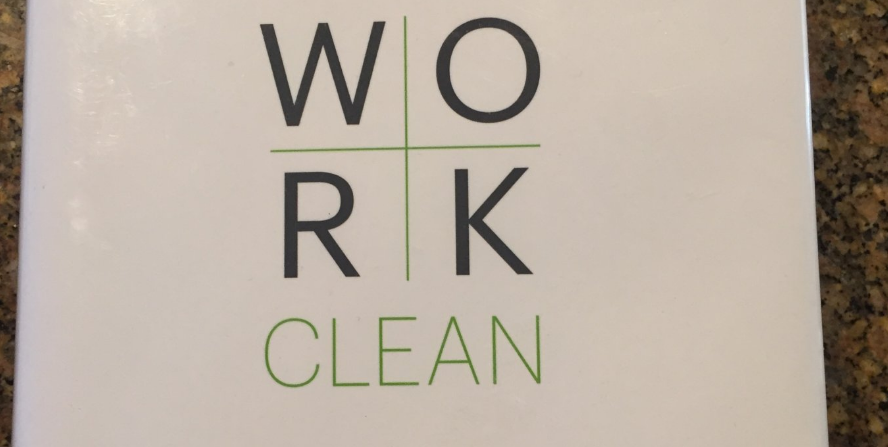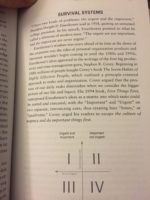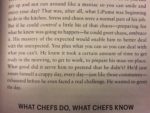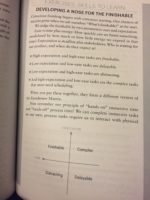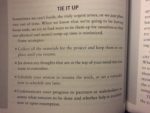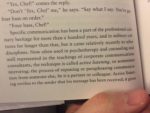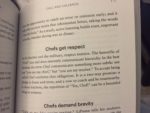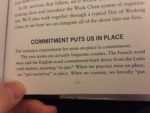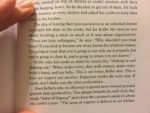 I finished the book Work Clean by Dan Charnas. It was a well written book about the behavior and habits of top chefs and how they organize to deliver excellent service each and every day. It is taking their principles of organization called mise-en-place and applying them to our business and every day life.
I finished the book Work Clean by Dan Charnas. It was a well written book about the behavior and habits of top chefs and how they organize to deliver excellent service each and every day. It is taking their principles of organization called mise-en-place and applying them to our business and every day life.
Survival Systems
Within the first part of the book, Charnas explains Survival Systems and how to escape the feeling of urgency. He quotes Dwight D. Eisenhower, “I have two kinds of problems: the urgent and the important. The urgent are not important, and the important are never urgent.”
Borrowing from Stephen R. Covey’s 1994 book First Things First, Charnas included a repurposed matrix based on the Eisenhower’s quote to help sort tasks to escape the culture of urgency and do important things first.
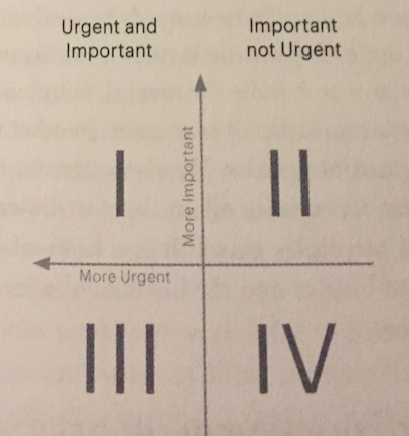
Greet the Day!
Continuing his lesson, Charnas shares a story from chef LiPuma. LiPuma noticed on his way to work one day that people were hurrying back and forth taking no care to those around them, each one displaying stress to get to where they were going. Charnas explains LiPuma’s situation:
“Stress and chaos were a normal part of his [LiPuma’s] job. But if he can control a little bit of the chaos – preparing for what he knew was going to happen – he could greet chaos, embrace it. His mastery of the expected would enable him to better deal with the unexpected. You plan what you can so you can deal with what you can’t. He knew it took a certain amount of time to get ready in the morning, to get to work, to prepare his mise-en-place. What good did it serve him to pretend that he didn’t? He’d just assure himself a crappy day, every day – just like those commuters – exhausted before he even faced a real challenge. He wanted to greet the day.” (pg. 45)
The idea is not let the expected pressures of tomorrow hit you without preparing for them first. If you prepare for the expected, then you can begin your day in control and at peace (with a greet) so that you are better able to tackle the unexpected.
Chefs De[cide]
Chefs make decision all day, every day. Sometimes these decisions have to be very quick.
“It’s hard to decide – literally, to kill one thing in favor of another, as the word decide comes from the same Latin root as homicide and suicide. Chefs make good executives because they are executioners, killing off the nonessential.” (Pg 46, 47)
To be excellent every day, we can’t be afraid to make decisions. Each decision eliminates the nonessential so that we can focus on that which makes us exceptional.
A few more quotes from the reading:
“Arriving early often unlocks opportunity”. (Pg 58)
“If you can’t clean, you can’t cook. You cook the way you look.” (Pg 86)
“Messy station equals messy mind. Clean station equals clean mind.” (Pg 90)
“An ending gives a story its meaning.” (Pg 99)
“The first moments count more than the later ones.” (Pg 102)
“To be ready, you have to make first moves.” (Pg 103)
“Excellence is quality delivered.” (Pg 122)
“Excellence is not about creating something of the highest quality; it’s delivering something of the highest quality, with all the constraints that delivery entails – deadlines, expectations, contingencies, feedback.” (Pg 130)
“The sense of urgency is defined in our kitchen as an opportunity for you to finish your job before you have to finish your job.… You’re going to get to the next level by being ready for the next level before that opportunity arises.” (Pg 276)
“You can’t be crippled by critical feedback. You have to grow through it. When I whisper, they’re leaning in. They’re getting closer to hear me. You yell at somebody, they’re pulling away from you. When you’re giving really critical feedback, you want them coming in to you. I’m really disappointed in you doing that. Then they go, Oh my God. It becomes so much louder to them.” (Pg 276 – How Thomas Keller handles criticism and delivering it)
What Can I Finish?
All work requires our time. There are two types of tasks that require our time:
- Immersive Tasks – These are “hands-on” tasks that require our full attention and usually must be done on our own.
- Process Tasks – These are “hands-off” tasks that require us to physically interact with others.
Charnas builds on the Eisenhower Matrix to help use determine what tasks to do first.
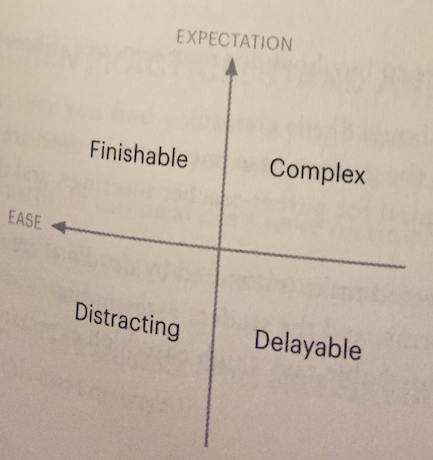
Chef = Teacher
One of the more endearing passages of the book has to do with the subtle, implied meaning of chef: teacher.
“To accept being called Chef confirms that obligation. It is a two-way promise: a pledge to learn and trust, and a vow to coach and be trustworthy.” (Pg 171)
Wrapping It All Up
Charnas discusses the art of active listening, the process of repeating or paraphrasing communication from someone else, and how it relates to excellence in the kitchen and life. Top chefs are committed to having a clean workplace and require that those that work with them in the kitchen adopt the same attitude. In the words of top chef Thomas Keller, “This is our house. This is how we respect one another.” (pg 275)
Daily Meeze
This culinary chef concept is discussed throughout the book and the video below does a great job of briefly explaining the process with the use of the Work Clean App.
Additional Misc Photos of the Book
